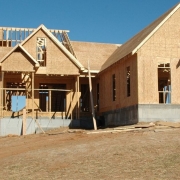Does My Sydney Renovation Need a DA?
Don’t get caught out. Your renovation may need a DA
With the real estate market being what it is over the last few years, it seems that more people are choosing to renovate their existing homes, rather than sell, buy, and move to bigger premises. This trend for renovations is readily apparent in recent year surveys conducted by Houzz and Home, which consisted of 13,000 Australian property owners.
Part of the motivation to renovate in Sydney can also be attributed to the fact that add-ons which increase living space or add more secure parking to a residence, often increase the aesthetic appeal and dollar value of a home.
According to research, the most appealing renovations appear to be extra bedrooms, garage space, and refinishing floors. However, whatever your reason for renovating, whether it is to increase comfortable living space or add value to a sale, you will need to have your local council sign off on the designs.
In a lot of cases, renovations will consist of minor repairs which don’t alter the original construction and won’t require council approval for the go ahead – but it’s still advisable to check. Renovations which required council approval but didn’t get it can result in dire consequences for the homeowner.
The council’s usual course of action will be to issue a fine, but further repercussions may hit even harder when insurance providers refuse to pay out on a policy because renovations were not up to code.
Don’t get caught out, and never assume that your renovations won’t require a DA.
What is a DA?
DA stands for development application, an official document you provide to your council before undertaking any work around your home. A development application provides all the details the council needs to ensure your plans for building or renovation remain compliant with the state’s building code. Officials will also consider the environmental impact of the construction and will ensure that it won’t pose as a nuisance to the surrounding neighbourhood.
How will I know if I need a DA?
Sometimes, things you would think do not require council approval really do. Even if other homes in the area have completed similar projects to what you plan, your property may have different constraints placed against it that are different from the constraints of your neighbours.
Exempt developments are projects you can complete without acquiring council approval, but even these still have development standards applied to them. If you are planning a smaller project you can determine whether you need a DA by using the Department of Planning and Environment’s building tool. A few examples of projects which are often exempt include:
- External refinishing
- Walls (freestanding) and fences
- Carports, garages, and sheds
- Gazebos
- Unroofed terraces, patios, and decks
Due to the severity of fines and possible insurance issues, it is always a good idea to check if your desired construction is permissible, and whether you will need to lodge a DA.




Leave a Reply
Want to join the discussion?Feel free to contribute!